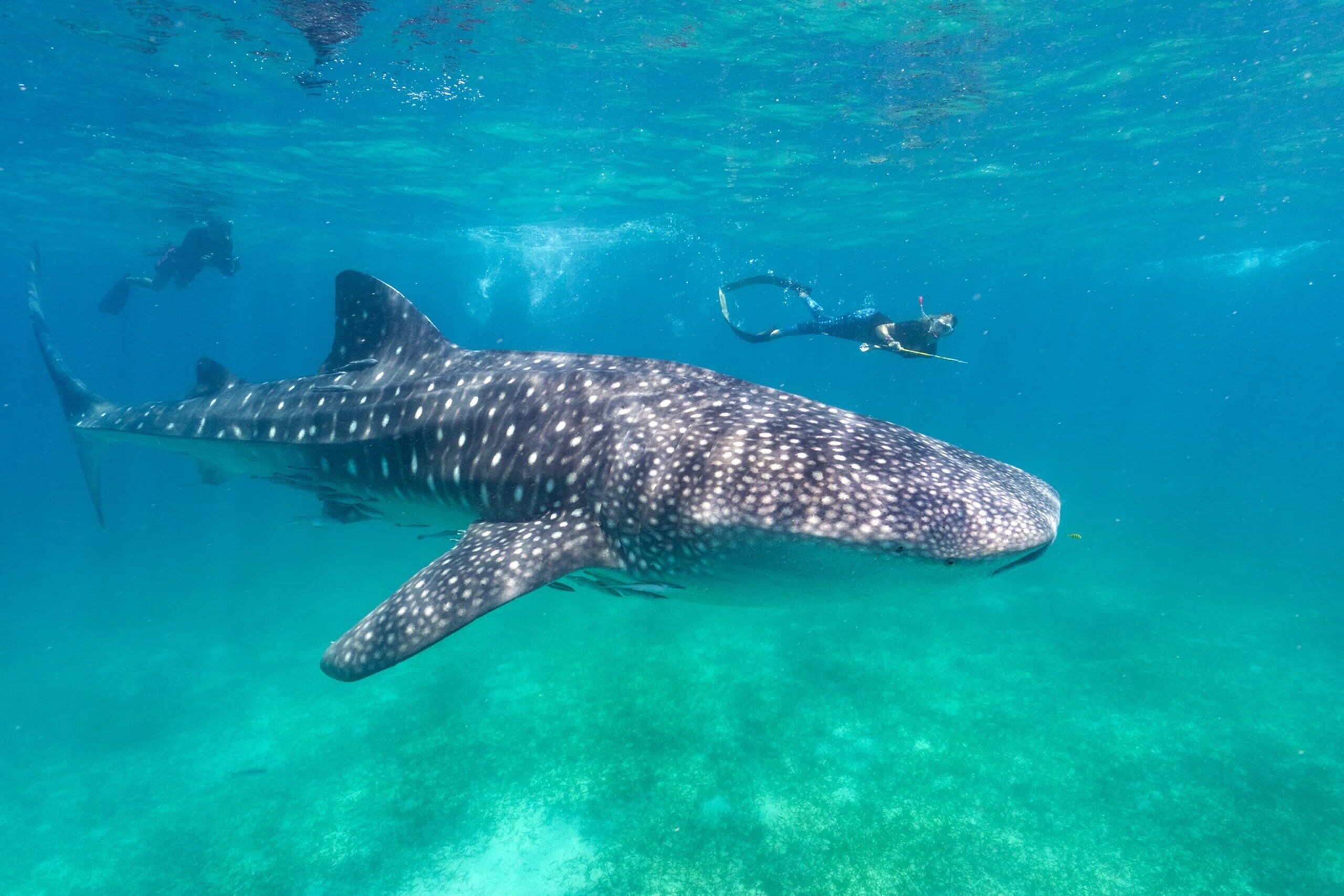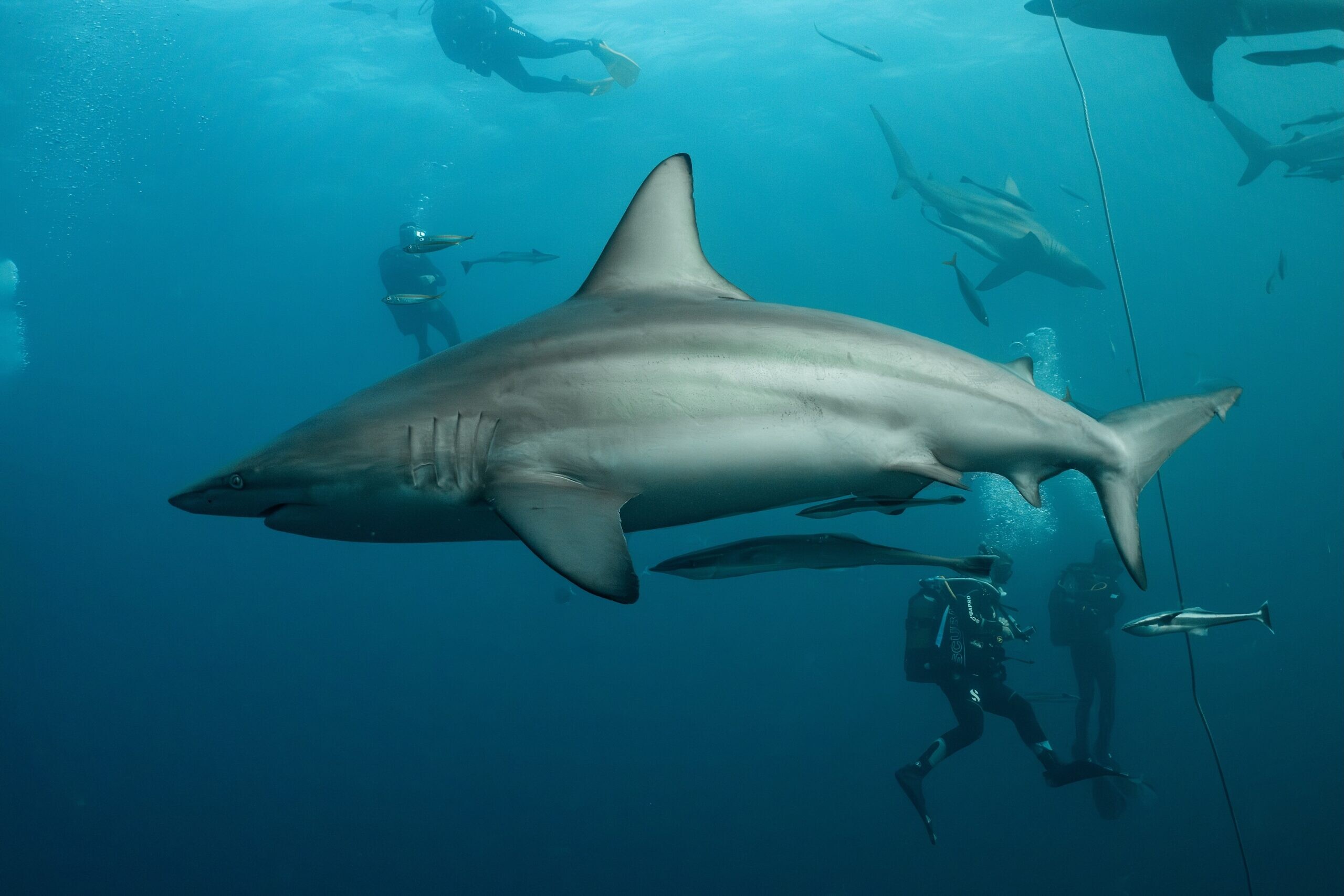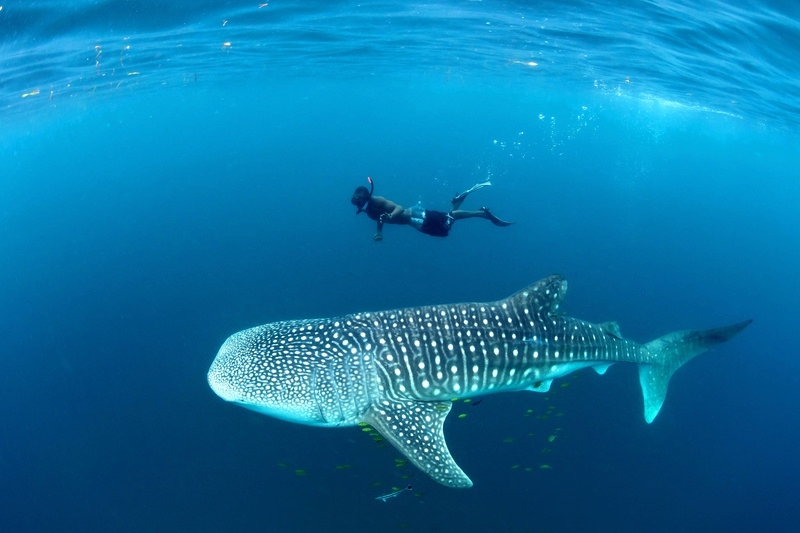To mark Shark Awareness Day on July 14, Seas4Life Ocean Safaris is proud to announce a dynamic partnership with the Shark Research Unit – South Africa, offering guests and ocean enthusiasts an extraordinary opportunity to witness and support shark research and conservation at the iconic Aliwal Shoal.
From July to November, Aliwal Shoal, located about five kilometres off the coast of KwaZulu-Natal, South Africa, becomes a hub of marine activity, as the Ragged Tooth Shark (known locally as “raggies") congregate in large numbers for the annual mating season. This period coincides with South Africa’s dry season, providing exceptional visibility and mild weather, ideal for diving, snorkelling, and marine exploration.

Dive into the World of Sharks
Seas4Life Ocean Safaris and the Shark Research Unit are inviting adventurers, conservationists, and visitors to experience the magic of Aliwal Shoal firsthand. The Shoal is a rocky reef formed from the remains of an ancient sand dune with a unique underwater landscape teeming with hard and soft corals, marine invertebrates, and tropical and subtropical fish species.
Named after the near-sinking of the three-masted vessel Aliwal in 1849, Aliwal Shoal is renowned for its biodiversity and is considered one of South Africa’s premier scuba diving destinations. The seasonal arrival of the Ragged Tooth Sharks is what truly sets this site apart as the magnificent creatures gather in large numbers between July and November.

The Importance of Shark Awareness Day
Shark Awareness Day, celebrated globally, is a critical opportunity to highlight the importance of sharks in marine ecosystems. Sharks play a vital role as apex predators, helping to maintain the balance of ocean life. By controlling the populations of other marine species, sharks ensure the health and diversity of coral reefs and other underwater habitats.
Despite their importance, shark populations are under threat from overfishing, habitat destruction, and misconceptions about their behaviour. Shark Awareness Day aims to dispel myths, promote conservation, and encourage sustainable practices that protect these splendid animals for future generations.
A big takeaway from the UN Ocean Summit 2025 in Nice was the launch of the Global Coalition to Halt Shark and Ray Extinction, supported by the Government of France – a huge step forward in the protection of sharks and rays. Eight other countries endorsed this initiative to conserve critical habitats, manage fisheries, regulate any trade of shark and ray products, and facilitate collaboration regionally and globally for shark and ray protection. The aim of this incredible collaboration is to provide a platform for urgent, coordinated, and science-based action to reverse the decline in marine populations of these great species.
Unparalleled Shark Experiences
Seas4Life Ocean Safaris, in partnership with the Shark Research Unit, offers a range of thrilling shark encounters suitable for all levels of experience, which aligns with Shark Research Unit’s role in providing science-based action to conserve sharks, which Seas4Life clients can participate in – a true collaboration:
- Snorkelling Adventures: Snorkelers can enjoy unforgettable encounters, floating alongside these gentle giants in their natural habitat.
- SCUBA Diving: Certified divers can join baited shark dives, exploring the vibrant reef and encountering a variety of marine life.
- SCUBA Training: Seas4Life and the Shark Research Unit also offer PADI SCUBA training programmes, empowering guests to become confident divers and ocean ambassadors.
Shark Research and Conservation
The Shark Research Unit, based in Durban, is at the forefront of shark conservation and research. Its photographic identification projects use advanced “mark-recapture" techniques to monitor shark populations. By analysing unique pigmentation patterns, dorsal fin notches, scars, and other identifying features, researchers can track individual sharks, assess population health, and gather critical data for conservation efforts. And by combining tourism with scientific research, the partner organisations are creating a model for responsible eco-tourism that benefits both people and wildlife.
The Unit’s research focuses on several key species, including the Great White Shark, Blacktip Shark, Sand Tiger Shark (Ragged Tooth Shark), Puffadder Shy Shark, and Pyjama Shark. Through these efforts, the Shark Research Unit is building a comprehensive understanding of shark ecology, migration patterns, and the impacts of human activity on these vital marine predators.
Why July is the Best Time to Visit
July marks the beginning of the Ragged Tooth Shark mating season at Aliwal Shoal, making it the perfect time to visit for shark enthusiasts. The dry season brings clear water and excellent visibility, enhancing the diving and snorkelling experience. Mild temperatures and calm conditions make it comfortable for both water-based and land-based activities.
In addition to sharks, visitors may encounter dolphins, sea turtles, and a diverse array of fish species, making every dive a singular and memorable adventure. Aliwal Shoal’s variety of dive sites caters to all skill levels, from beginners to advanced divers.
About Seas4Life
Seas4Life caters to adventurous travellers who seek to immerse themselves in the beauty, serenity and vibrancy of the seas. Whether sailing along Mozambique’s coast, diving into the crystalline waters of Pemba Island, or exploring hidden coves on private islands, its itineraries are personalised to meet your unique preferences and desires. Meaningful escapism is allied with a commitment to sustainability, with a portion of Seas4Life proceeds going into marine conservation efforts.








